Brands constantly compete for their customers' attention. Given the competitive nature of the space, how do you ensure that your marketing tactics work?
Today's marketing industry is evolving faster than ever. New marketing campaigns pop up daily, each promising to deliver greater ROI than the rest. You need a marketing campaign that drives the most sales possible for more exposure and recognition in your industry.
Find out how the best-selling marketing strategies can boost your business. Here are some tried-and-true methods to help you get a leg up on your competition.
Let’s get started!
What Is a Good Marketing Campaign?
A good marketing campaign starts with a solid plan. You need to know what you want and how to get there. When deciding the type of marketing campaign to create, consider your target audience and what appeals to them.
Then, create a strategy to reach your target audience. Focus on online ads, print ads, and events. Once you've got a plan, it's time to start executing it! Do your research and make sure your ads are targeted correctly. Finally, stay consistent with your campaign over the long term, so people see the effects and remember your brand.
Why Are Marketing Campaigns So Important For Your Business?
Marketing campaigns are an important part of any business’s marketing strategy. They can help increase sales and brand awareness while also increasing customer loyalty.
Here are some key reasons why effectively planning marketing campaigns is important:
1. They Can Enhance Overall Sales Volume
A well-executed marketing campaign can significantly increase sales. By targeting specific demographics and creating compelling content, companies can drive more website traffic and turn potential customers into actual buyers. This increased exposure can also lead to higher levels of brand recognition and increased demand for your products or services.
2. They Can Increase Customer Loyalty
One of the main benefits of marketing campaigns is their ability to create loyal customers. By developing targeted content and distributing it through various channels (such as social media), businesses can create a sense of connection with their consumers that can be hard to replicate elsewhere. This strong relationship leads to future purchases and positive word-of-mouth marketing that can encourage other potential customers to invest in your product or service.
3. They Can Create Voice For Your Business
Strategically planning marketing campaigns help amplify your business's voice and give it a stronger presence online and offline. By promoting content on popular platforms (like blogs and social media pages), businesses can attract new followers who may share their positive experiences with friends and family members – resulting in even greater visibility for your company!
5 Components of a Good Marketing Campaign
A good marketing campaign should have the following components:
1. Defined Audience
A good marketing campaign starts with identifying your target audience. Once you know who you’re marketing to, you can create a campaign that resonates with them. There're several ways to do this, but one of the simplest is to focus on what they care about.
Once you've got a handle on your target audience, it’s time to figure out what you can offer them. You need to craft a message that will resonate with them and motivate them to take action. This means creating ads, content, and even customer service that meets their needs.
If done correctly, a good marketing campaign will help your business grow and reach its highest potential.
2. A Solid Offer
An important part of a good marketing campaign is creating a compelling offer to get consumers to take action.
Offers should be tailored to the target audience's needs and provide value that cannot be found elsewhere. It's also important to create an effective communication strategy that allows consumers to learn about your product or service and understand how it can benefit them.
Finally, it's essential to track results and measure progress so that you can make changes as needed.
3. A Hook
A good marketing campaign should have a hook that grabs customers' attention and makes them want to learn more. A strong hook can be the difference between failed and successful campaigns.
Here are a few examples of good hooks:
Unique Selling proposition - What sets your company apart from the competition? Why should customers choose you over your competitors? What Makes you better than everyone else?
A solution to a problem - Another great way to grab customers’ attention is by solving their problems. When people know they can get help with their problems, they're much more likely to take action. Showcase how your product or service can solve someone’s specific problem.
Fear factor - Sometimes, it takes fear to get people interested in your product or service. Showcase how your product or service can make life easier, faster, or even safer for them. Or talk about what could happen if they don’t buy into it!
Humor - People love humor, especially when it comes to ads. Use it to your advantage and ensure every ad you create has a little humor injected into it. It will go a long way in making people stop and pay attention.
You may even see your ad go viral when you create a good hook. A great example of a good idea for a marketing campaign is Pepsi’s “Pepsi Generation” campaign. This campaign used nostalgia to hook customers and get them interested in learning more about Pepsi.
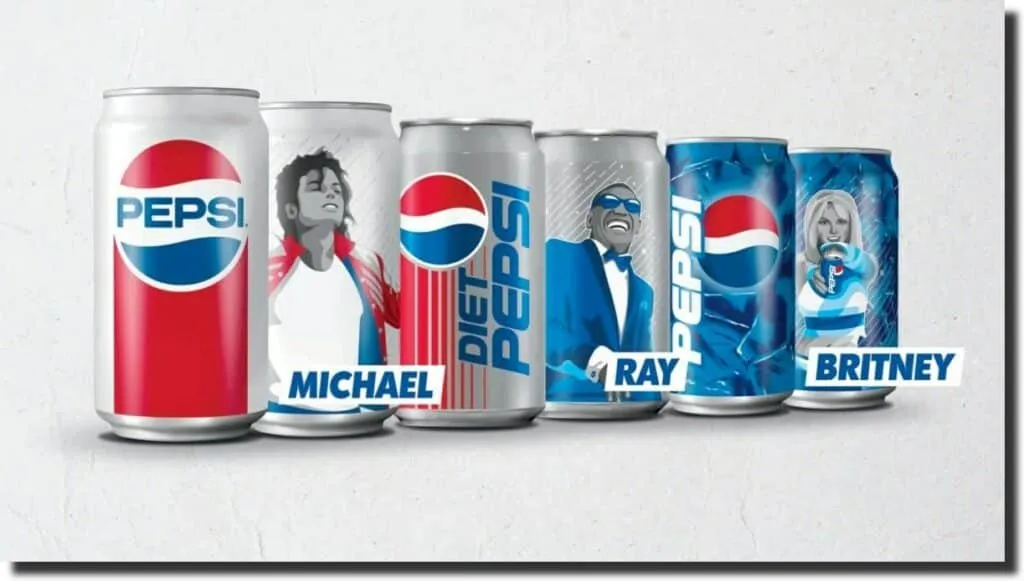
Another great example of a successful marketing campaign is Nike’s “Just Do It” slogan. This slogan relates to the customer emotionally, making them want to buy Nike products.

4. Brand Awareness
Good ideas for marketing campaigns begin with strong brand awareness. To achieve this, you must create a strong identity for your company and communicate it to the public. You can do this through advertising, public relations, and product labeling.
Advertising is the most common way to reach out to potential customers. It can be done through print media, television, or the internet. You must pick an advertising medium to reach your target audience and deliver the message.
Public relations is another important tool for creating brand awareness. PR assists companies by managing their relationship with the media and other stakeholders. It can help by providing information about the company, products, and upcoming events. PR also helps build relationships with key stakeholders so they'll support your marketing efforts.
Product labeling is also important for brand awareness. This includes everything from product packaging to product names and slogans. Product labeling can help people identify products as theirs without having to look at the product itself. This makes it easier for them to purchase items they may be interested in without searching through a large selection of products.
5. Competitive Edge
Good ideas for marketing campaigns start with understanding your company's advantage. Figure out what makes your company different from your competition, and focus on highlighting that difference in your marketing efforts.
Use customer research to identify why people buy from you and focus your marketing on selling those benefits to potential customers. Make sure your branding and advertising reflect your company's unique personality and make it easy for potential customers to find information about you online.
Tried and Tested Easy-To-Implement Types of Marketing Campaigns
The following is a brief overview of the most common types of marketing campaigns.
An Educational Campaign
An effective marketing campaign starts with keeping your customers informed. Not only do you need to keep them apprised of what's new and happening with your company, but you also need to ensure they're kept in the loop about upcoming educational opportunities.
One way to do this is by holding webinars or other live events. These can be a great way to get your customers involved and educated on important topics. Additionally, ensure you regularly feature customer-centric content on your website and social media channels. This will not only keep them in the know, but it will also create a positive brand sentiment and encourage more people to become customers.
Finally, always ensure you've got an efficient customer service system. You never know when a problem may occur, and you must have somebody available to help resolve any issues as quickly as possible.
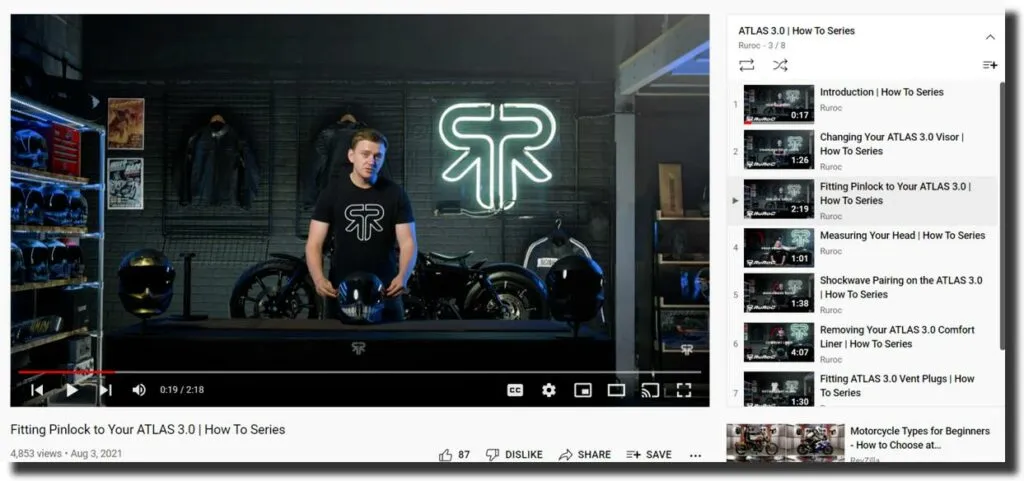
Build Referral Program
Building a referral program from scratch is a great way to promote ongoing sales through satisfied customers. When someone refers you, they tell their friends and family about your business and convince them to buy from you too.
There're several different ways to create a referral program. You could use a sign-up sheet on your website where people can enter their name, email address, and the name of the person they referred. You could also give out promotional materials like flyers or pamphlets with a referral code.
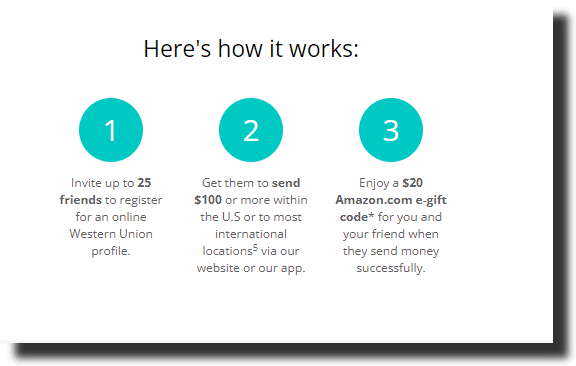
Here are four tips for designing and implementing a referral program:
- Set milestones and reward customers for referrals who hit them. This will help motivate customers to refer friends and family. It’ll also help them stay focused on the goal of referral growth.
- Make it easy for customers to refer their friends and family members. Include referral forms or links on your website, send out referral codes or email invitations, or create a dedicated Referral Program page on your website.
- Make it clear how referrals are rewarded. Offer exclusive deals or discounts to those who refer multiple people or give away free products or services to those who bring in the most referrals.
- Be sure to communicate referral program details regularly to maintain interest and promote participation among your customer base. Regular blog posts about the program, social media announcements, and even holiday-themed incentive programs will keep everyone engaged!
Connect With Influencers
If you're looking to achieve a higher level of brand awareness, one approach is to connect with influencers. There's no one-size-fits-all approach to this, as the best way to connect with influencers will vary based on your product and target audience.
However, some tips can help you get started:
- Research your influencers. Before connecting with them, research who is influential in your industry and what topics or topics they cover. This will help you determine which influencers would be the best fit for your campaign and give you an idea of their audience reach.
- Identify common interests between you and the influencer. Once you've researched your influencers, it's important to identify any common interests or connections. This will make it easier for you to communicate and build relationships around your shared values.
- Set expectations from the beginning. Make sure you and the influencer understand what is expected from the campaign – including how much content will be produced when it's released and how often contact will be made between the two parties. This will ensure that both parties are comfortable with moving forward with the campaign goals in mind.
Create A Buzz With A Contest Or Giveaway
Looking to generate some buzz for your marketing campaign? Try hosting a contest or giveaway! Not only will this help you draw attention to your content, but it can also generate excitement among your target audience.
Think about what type of contest or giveaway would appeal to your audience. You could offer a prize related to your product or service. You could also give away free products or vouchers in exchange for feedback. Whatever you choose while managing marketing campaigns, make sure it’s something that your audience will want and is likely to use.
Once you plan a contest or giveaway, promote it prominently on your website and social media accounts. You can also distribute information about the contest through email newsletters, PR campaigns, and other means of communication. The key is to get as much word-of-mouth exposure as possible so that people know about your opportunity and can enter without having to search for information first.
You should craft your giveaway campaign to improve engagement.
To do so, you should explicitly ask your audience for the following:
- Follows
- @mentions
- @tags
- Promoting a #hashtag
- Creating content
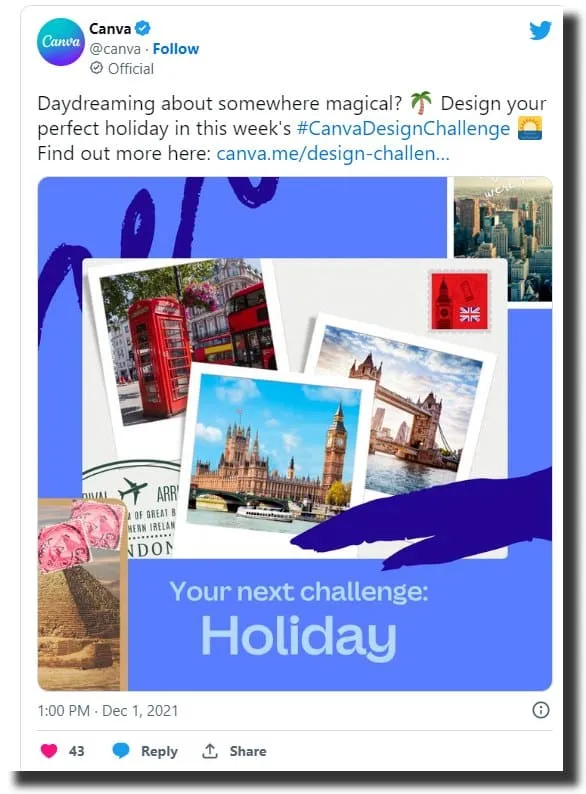
User-Generated Content
User-generated content (UGC) is amazing for marketers because anyone can create it anywhere. It's very organic and authentic so that it can stand out from the crowd.
A great way to engage customers with UGC campaigns is to get them to create their content. This could be anything from blog posts to video reviews. You could even get your customers to create social media posts about your product or service.
This type of campaign can be extremely successful if you can get your customers involved in the creation process. They'll feel like they're contributing something valuable to your marketing efforts and become advocates for your brand.
Attract Customers With Holiday Campaigns
Looking to entice shoppers during the holiday season?
Here are a few marketing campaign ideas to get you started:
- Create a festive advertising campaign incorporating Christmas, Hannukah, and Kwanzaa themes. This will help you target specific groups of consumers and increase your reach.
- Develop seasonal social media posts emphasizing the holidays' joys – from family gatherings to gift-giving. This will encourage people to join the festivities online and help spread the word about your products.
- Create special holiday-themed sales or offers that incentivize customers to visit your store or website. This can include discounts on select items, free shipping on orders over a certain dollar amount, or loyalty rewards programs.
- Host holiday-themed events in your store or online presence – from gingerbread house decorating contests to cookie baking contests. This will allow customers to interact with your brand and learn more about your products.
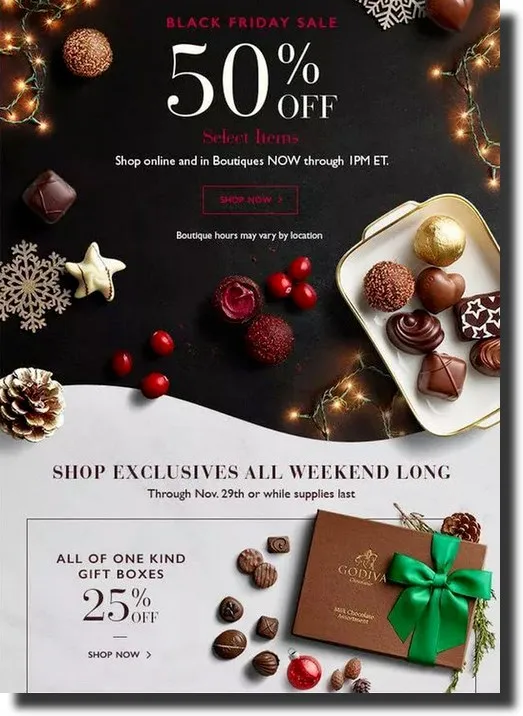
Hype Up Your Next Product Launch
While many businesses wait until the last minute to launch new products or services, there're plenty of opportunities to hype up your next product launch through marketing campaigns.
Start by creating a buzz around your upcoming release with social media posts, blog articles, and even guerrilla marketing tactics like street team recruitment and giveaways. You can also use targeted advertising to reach potential customers.
Once your product is officially available, make sure you deliver on all of the promises you made during the hype cycle. Keep people engaged by regularly releasing new content and features and continuing to drive traffic to your website and landing pages. Make sure that people who’ve already invested in your product feel appreciated by offering exclusive discounts or new features.

Steps Of Developing A Winning Marketing Campaign
Determine Your Objective and Budget
Before creating your marketing campaign, you must clearly understand your objectives and how much you're willing to spend. With this critical information, it will be easier managing marketing campaigns.
Your objectives should be specific, measurable, attainable, realistic, and time-based. That means you need to know exactly what you want to achieve and when you want to achieve it. For example, if you're launching a new product, your objective might be to increase awareness among potential customers within a certain geographic area.
Your budget will determine the scope of your campaign. If you've a limited budget, you should focus on one or two channels rather than trying to reach people through multiple channels. Once you've determined your objective and budget, you can plan your strategy.
Identify Your Target Audience
When planning your marketing campaign, it's important to consider who your target audience is. This can be people of a certain age, gender, location, or interests. Once you know who your target audience is, you can create content that is tailored to them. This will make your campaign more effective and ensures it reaches the right people.
If you need to figure out who your target audience is, there're a few ways to find out. First, you can look at your existing customer base and see who is buying from you. You can also use market research to learn more about potential customers. This can help you narrow down your target audience and create content that appeals to them.
Once you've identified your target audience, you must create content that speaks to them. This could include blog posts, social media posts, or even ads specifically designed for this group. By speaking directly to your target audience, you'll be more likely to engage them and encourage them to take action.
Create Your Message
To develop a winning marketing campaign, you need first to create your message. This involves understanding what you want to say and then determining the best way to communicate that message to your target audience.
Here are a few key things to remember when creating your message:
- Keep it simple - The more complex your message is, the less likely people will understand it. So make sure to keep your message clear and concise.
- Know your audience - You must tailor your message to the specific audience you're trying to reach. Consider what they care about and what would resonate with them.
- Make it memorable - Your message needs to be something people will remember long after seeing it. Use strong language and visuals to make an impact.
Develop Your Media Strategy
You must start by identifying your target audience to develop a winning media strategy. Who are you trying to reach with your campaign? Once you know who you're targeting, you can start to think about the best ways to reach them.
Do they spend time on social media? If so, which platforms are they using? Are they more likely to watch TV or listen to the radio? Or are they avid readers of certain magazines or websites?
Once you understand where your target audience spends their time, you can start planning your media strategy. Decide which channels will most effectively reach your target audience and create content that will grab their attention.
Implement Your Marketing Campaign
It's now time to implement your plan. This is where the rubber meets the road, and you'll need to work hard to make your campaign a success.
Here are some tips for implementing your marketing campaign:
- Set realistic goals and objectives. Without specific goals, it will be difficult to measure the success of your campaign.
- Create a timeline for your campaign. This will help you stay on track and meet all deadlines.
- Assemble your team. Make sure you have the right people to execute your plan.
- Develop creative assets. This could include everything from graphics and logos to website content and social media posts.
- Promote, promote, promote! Get the word out about your campaign through all channels possible, including paid advertising, PR, and social media.
Measure & Analyze Your Results
To gauge the effectiveness of your marketing campaign, you'll need to measure and analyze your results. This can be done through various methods, such as surveys, focus groups, customer feedback, and data analysis.
Once you've gathered your data, it's important to take the time to analyze it and identify any patterns or trends. This will help you to determine what is working well and what needs to be improved.
It's also important to keep track of your ROI (return on investment) to see if your campaign is cost-effective. If you don't see a positive ROI, you may need to adjust your campaign to improve its effectiveness.
Get Your Business In The Spotlight With MUUP!
You need a marketing team to reach the right audiences and provide them with the content they need. A good marketing campaign starts with a clear strategy and goal. It is based on your target market and product and considers the current environment.
Your marketing efforts should also be focused on creating customer loyalty. This means providing value to customers beyond what they expect from your product or company.
MUUP delivers an actionable plan with proven strategies to generate leads and increase sales.
Discover the easiest and fastest way to boost your business sales. create a winning marketing campaign with MUUP!




